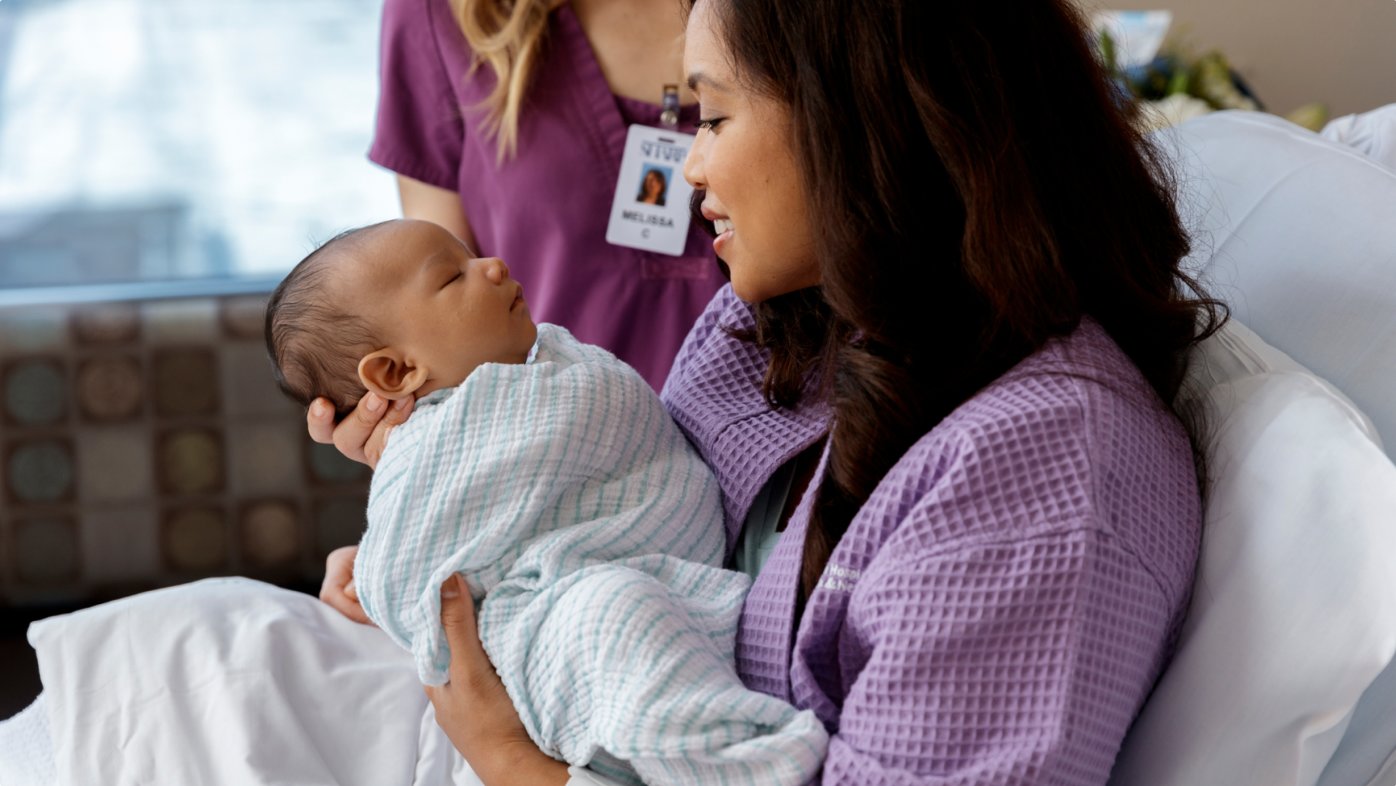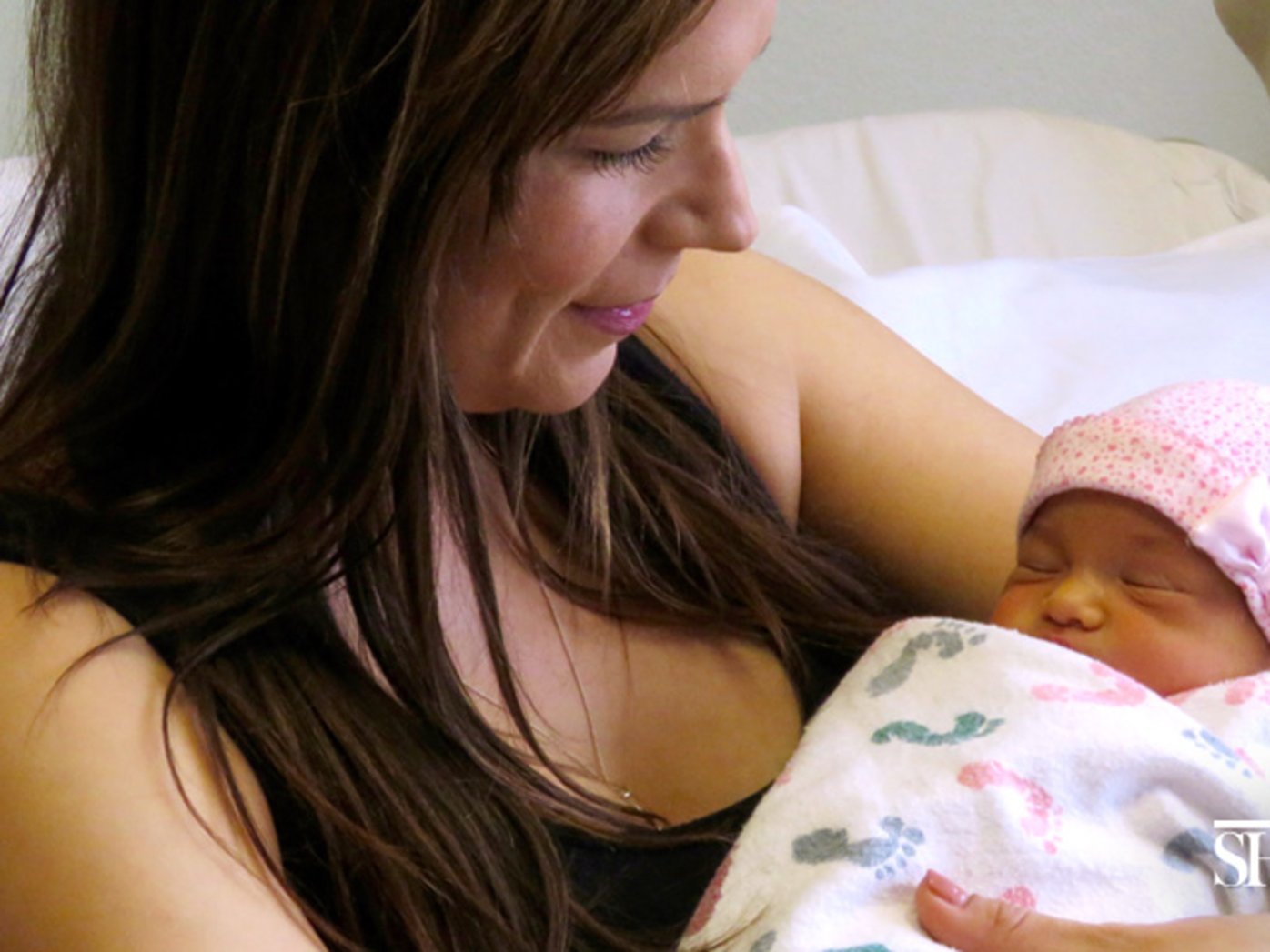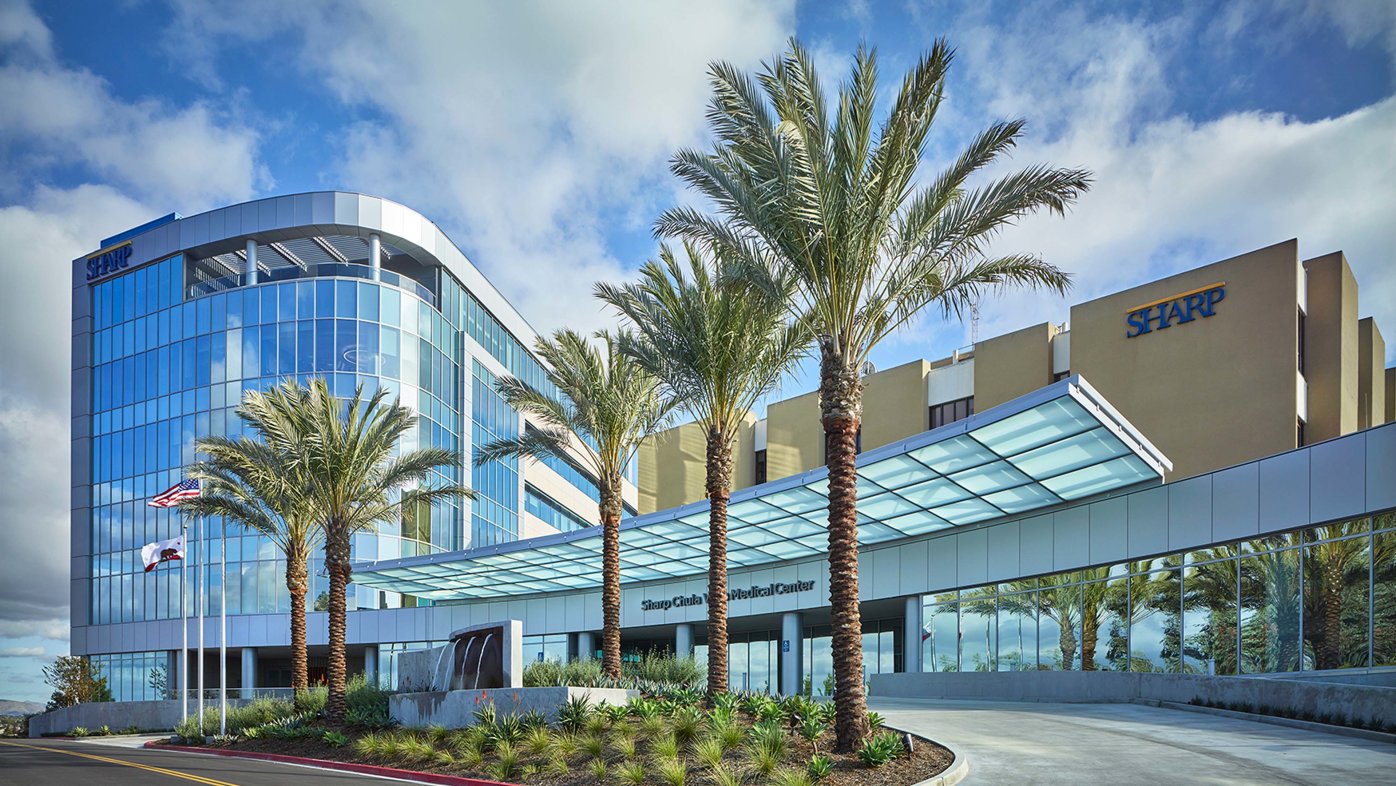
Maternity classes and support groups
Childbirth classes and support groups to help prepare expecting parents for their new arrival.

We're here for you and your family throughout your journey — before, during and after pregnancy. From prenatal classes to infant care, we support you, and your choices, every step of the way.
Choose the San Diego OBGYN who's right for you.
You can trust your birthing team knowing that no one in San Diego has more experience delivering babies. We specialize in OBGYN, childbirth and newborn care that covers everything you and your baby need.
To deliver your baby at Sharp, your first step will be to choose an OBGYN who delivers at one of our childbirth hospitals: Sharp Chula Vista, Sharp Grossmont or Sharp Mary Birch. You can filter your doctor results by insurance plan, language spoken, gender and more.
If you’d like help finding the right OBGYN for you and your family, call 1-800-827-4277 (1-800-827-4277) and our specially trained physician-referral nurses can answer your questions and schedule your first appointment.
There are several factors that determine the cost of childbirth including individual hospital charges, your insurance coverage and your method of delivery. Call our childbirth hospitals for their estimated out-of-pocket expenses or get a price estimate.
Sharp Chula Vista: 619-502-3638 | Sharp Grossmont: 619-740-4980 | Sharp Mary Birch: 858-939-4295
For first-time parents to seasoned pros, we offer classes on pregnancy, childbirth, newborn care, parenting, hospital tours and more. Explore our pregnancy and childbirth classes.
If a Sharp-affiliated pediatrician is chosen before delivery, we can coordinate with that doctor to check on the newborn in the hospital. If no doctor is assigned before birth, our Sharp-affiliated pediatricians do daily hospital rounds to check on the well-being and health of our newborns.
The signs of labor vary from person to person, so it can sometimes be difficult to know when your baby is coming. Generally, if you experience the signs below, it's time to go to the hospital.
You have vaginal bleeding similar to your period, or greater
Your water breaks
Women expecting their first baby: You have painful contractions that occur every 3 to 5 minutes, lasting 45 seconds and are regular for 2 hours
Women who have previously given birth: You have strong contractions that occur every 3, 5 or 7 minutes apart, lasting 30 seconds and are regular for 1 hour or more; or you are experiencing severe pain with no relief between contractions
When you arrive at the hospital, please do not park in handicapped or ambulance parking areas. Wheelchairs are available at all hospitals. Find the map, directions and parking information for the Sharp hospital where you will be delivering: Sharp Chula Vista, Sharp Grossmont or Sharp Mary Birch.
Your maternity preadmission form and birth plan
Before your delivery date arrives, it’s important to fill out the maternity preadmission form and
birth plan worksheet and bring them with you to the hospital.
Your overnight bag
Have your bags packed in advance. It's best to have a smaller bag with items you'll want during labor and a larger bag or suitcase with postpartum items, such as going-home outfits for baby and mom, toiletries and a nursing bra. Make sure you bring your phone and camera chargers, and it’s always a great idea to pack nutritious snacks.
A safely installed car seat
Before your due date, make sure you are ready to bring baby home in a properly installed car seat. According to safety experts, 96 percent of all car seats in San Diego County are improperly installed.
To create a Sharp account, go to sharp.com/app. You can also download the Sharp app to a mobile device from the Apple Store or Google Play Store and create an account.
A Sharp account gives you secure, personalized access to manage your health and the care of loved ones from a computer or mobile device.
With a Sharp account, you can:
Schedule medical appointments
Book same-day virtual visits
Message your care team
Check in for appointments
View lab results
Manage and refill prescriptions
Join waitlists for earlier or same-day appointments
Fill out forms before appointments
Pay bills and set up payment plans
Access resources for trusted health information
And more
Sign in or sign up for a Sharp account or learn more. If you need assistance or have questions, we're here to help.
Bringing home baby means lots of changes — and we're not just talking diapers. We're here to smooth your transition to parenthood with helpful resources and expert advice.
When you have a baby at Sharp, we will give you the necessary paperwork to register your child's birth and obtain a birth certificate. By law, you must register the birth of your baby within 10 days of the birth. Once your baby's birth is registered, you can request a certified copy and/or informational copy of your baby's birth certificate from the Office of Vital Records and Statistics, or the San Diego Assessor/Recorder/County Clerk. which provides instructions on how to request a birth certificate in person or by mail. Please allow 2 to 3 weeks after the birthdate to request a birth certificate. Birth certificates are not issued by our hospitals.
Establishing legal fatherhood: When the parents of a newborn are unmarried, paternity is not automatically established — the father does not have the legal rights of a parent and will not be added to the birth certificate. Through the Paternity Opportunity Program, you can form a legal link from father to child. This free program allows you to establish paternity voluntarily, without going to court.
You can obtain a Social Security number for your baby by contacting your local Social Security office. To find a Social Security office near you, call 1-800-772-1213 or visit the Social Security Administration online. If a Social Security card was requested for your baby, it should arrive in the mail within 2 to 8 weeks.
Parents who give birth at Sharp Grossmont Hospital for Women & Newborns may apply for Social Security cards through the hospital's birth certificate office. You must have a valid U.S. address (P.O. boxes are acceptable), and your baby's weight must be more than 2.2 pounds. For surrogate births and adoption, which require special paperwork, please contact your local Social Security office to obtain cards.
After a C-section, many layers of incisions must heal at the same time. Follow these guidelines to make your recovery as safe, swift and comfortable as possible:
Your pain should decrease each day and can be reduced with pain medicine as prescribed by your doctor
Avoid lifting anything heavier than your baby for the first four to six weeks
The outer stitches or staples on the skin may be removed before you go home from the hospital, and SteriStrips may be placed over the incision for one week
To shower, remove the SteriStrips, gently wash the incision and pat it dry, then replace the SteriStrips
Check your incision daily to ensure it is healing and that the edges of the incision are touching
Ask your health care provider when it is OK to bathe or swim
Schedule a follow-up appointment with your doctor once you get home from the hospital, usually between one and six weeks after delivery
Call your doctor if you experience any of the following after your C-section:
Difficulty adjusting, including "baby blues," that lasts more than two weeks
Excessive crying, anxiety, sleeping and/or eating difficulties or scary thoughts
Drainage or fluid from the incision, including bleeding, pus or foul-smelling discharge
Redness, excessive warmth or swelling at the incision area
Increased tenderness or soreness at the incision
Incision edges are no longer together
Frequent urination, difficulty urinating or burning sensations
Severe diarrhea or lack of bowel movements for three consecutive days
Nipple soreness that lasts more than the first minutes of feeding, or breast soreness for more than the first one to two weeks after birth
Tenderness, redness or hardened areas in your breasts other than during engorgement
Cracked or bleeding nipples
Temperature over 100.4 degrees Fahrenheit
Follow these guidelines for a safe, healthy and swift recovery after your vaginal delivery:
Get as much rest as possible by napping when your baby naps and accepting help from relatives and friends
Try to walk often, but check with your doctor before you exercise, climb stairs, drive a car or perform other physical activities
You will have vaginal discharge (lochia) for up to six weeks after delivery; expect bright red, moderate to heavy blood flow for the first few days, with discharge gradually decreasing from pink or brown to yellow or white
If you have stitches to repair an episiotomy (vaginal incision) or a tear, they will dissolve by themselves and do not need to be removed
Urinating and bowel movements may be difficult or uncomfortable the first few days after delivery; while on the toilet, you may wish to pour warm water over your bottom or urinate while taking a warm shower
Wipe from front to back after urination and bowel movements, then rinse using a squirt bottle filled with warm water and gently pat the area dry
To help with bowel movements, drink plenty of fluids and eat fibrous foods, such as fresh fruits, vegetables, whole grains and bran
Promote healing by keeping your bottom (perineum) clean with daily showers, medicated pads, sprays or sitz baths, but check with your doctor before soaking in the bathtub or hot tub
For hemorrhoids, use a sitz bath or sit in a tub with a few inches of warm water for 10 to 15 minutes
Do not use tampons or douche until approved by your doctor
Schedule a follow-up appointment with your doctor once you get home from the hospital, usually between one and six weeks after delivery
Call your doctor if you experience any of the following after you deliver vaginally:
Difficulty adjusting, including "baby blues," that lasts more than two weeks
Excessive crying, anxiety, sleeping and/or eating difficulties or scary thoughts
Foul-smelling discharge
A return to bright red or pinkish/brownish discharge after the first week
Heavy discharge that soaks more than one pad per hour or includes large clots or tissue
No discharge in the first two weeks
Tenderness, redness, swelling, drainage or separation of episiotomy
Frequent urination, difficulty urinating or burning sensations
Severe diarrhea or lack of bowel movements for three consecutive days
Nipple soreness that lasts more than the first minutes of feeding, or breast soreness for more than the first one to two weeks after birth
Tenderness, redness or hardened areas in your breasts other than during engorgement
Cracked or bleeding nipples
Temperature over 100.4 degrees Fahrenheit
We offer maternity care across San Diego — from South Bay to East County to Kearny Mesa.



